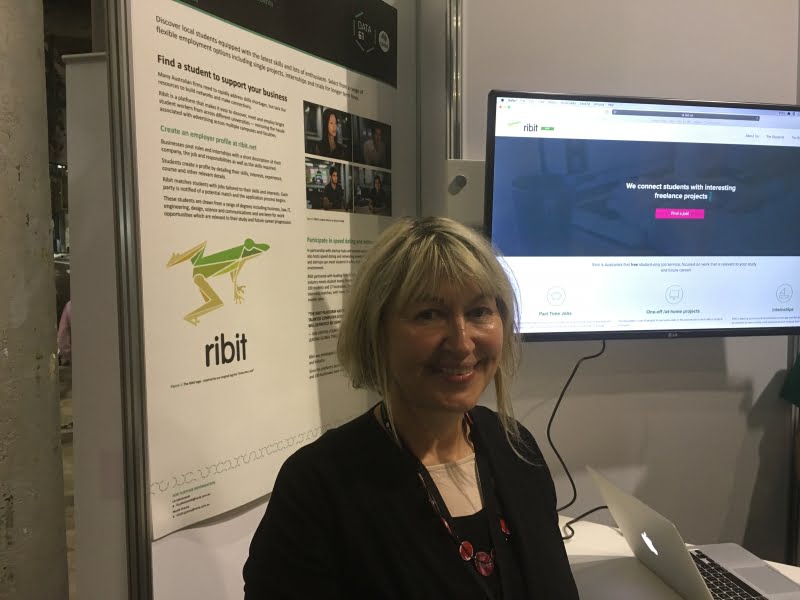Re-hatched government tech research and commercialisation arm Data61 got to strut its stuff in public this week attracting over 1000 visitors to its D61+Live event at the Australian Technology Park in Sydney’s Redfern.
D61+Live featured 78 booths with demos of Data61 research goodies ranging from all-purpose digital tool for tracking and displaying Australian data called the National Map to fundamental cyber security technology, such as the impenetrable seL4 microkernel, and an online hub called Ribit that helps link students with business internships, projects and job trials.
D61+ Live was the public recovery from a near death experience for Data61, which is the reincarnation of NICTA, the Howard Government tech research initiative that had been defunded by the Abbott Government, then swallowed into CSIRO last year, and then partly refunded as Data61 by the Turnbull administration.

While the demo booths were buzzing, Data61 faces more tough times in April as a wave of retrenchments flow through the organisation due to rationalisation and repurposing resulting from being absorbed into CSIRO.
Data61 chief executive Adrian Turner said there had been an intense period of consultation with project teams as the agency worked through who would go and who would stay. He said somewhere south of 100 positions would go during April, although not all would be retrenchments, with some project teams being placed elsewhere.
Mr Turner said redundancy was the last option and that he had been burning shoe leather looking for opportunities to place teams and people that no fitted inside the Data61 strategic plan.
“I’ve been out in the market and on planes and priming third parties that could consume any of the capability that we have. Ultimately there will be people impacted, but it will be a lot less than was talked about at the time of the merger (with CSIRO). It’s a lot less too than had NICTA been shut down which would have been a tragedy for the country.”
While there is some gloom to come in April, it’s not all doom at Data61.
Liz Jakubowski, an old NICTA hand who used to run government relations is now the director of Data61’s new student-to-business placement portal Ribit, which was on show at D61+Live.
‘This is a unique service in the marketplace. There’s nothing that connects students directly with businesses and start-ups in the way we are doing it.’
‘We are focussing on the core skills that businesses need to transform – these are programming communications, design and business analytics. What we are doing is making this sort of engagement really easy.’
The free service launched as a beta site in February, mainly targeting the Sydney market before it scales out to the rest of the country. So far it has over 1200 students on tap and Ms Jakubowski expects to launch a full service in early June.
D61+ Live closed off with two old tech venture hands mulling the future of Australian innovation over a bottle of wine.
CSIRO boss and serial entrepreneur Larry Marshall sat down with Innovation and Science Australia chairman Bill Ferris for a wide ranging discussion on how to get Australian research, funding and business collaboration up to scratch (where Mr Ferris appeared to garner the lion’s share of the bottle of red that sat between them.)
While praising the standard of pure research in Australia, Mr Ferris said the country had to do something about its bottom of the pile ranking in university-to-business collaboration.
Mr Ferris said university researchers had to change their culture to be more aware of business needs, rather than just looking inward to their own peers for recognition, while business also had seek out collaboration with universities.
He said he saw encouraging signs from many vice-chancellors where the ‘penny had dropped’ on the benefits of closer collaboration with business and they were increasingly interested in spin-offs and joint ventures.
Business needed to lift its game in snuggling up to universities.
‘We’ve got to get business reaching in, aggressively, and finding out where the bloody universities are for a start,’ he said. It’s really that bad.’
Mr Ferris suggested using the R&D tax incentive scheme as a lever to push better collaboration.
A big lever to foster collaboration could the R&D tax incentives scheme.
‘It’s a $3 billion cheque book entirely there for funding private research and development. There must be a way of using it to encourage, require and demand collaboration,’ he said.
Mr Ferris wanted to know when CSIRO’s own innovation fund would close its first deal.
As part of the National Innovation and Science Agenda CSIRO has established a fund with $70 million over 10 years from government plus money from CSIRO’s WLAN licencing stream.
Mr Marshall said he was confident the first deal would close by July.
Do you know more? Contact James Riley via Email.
